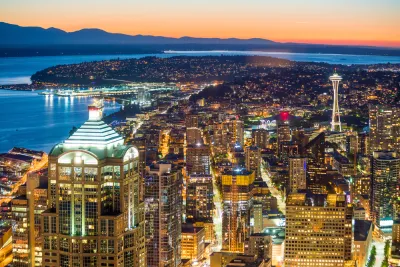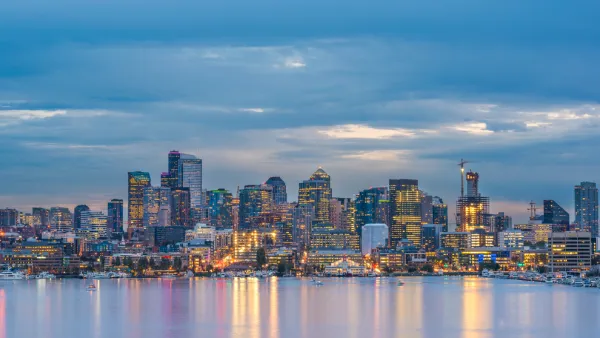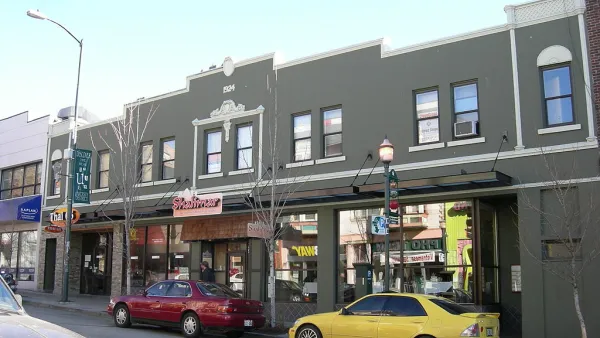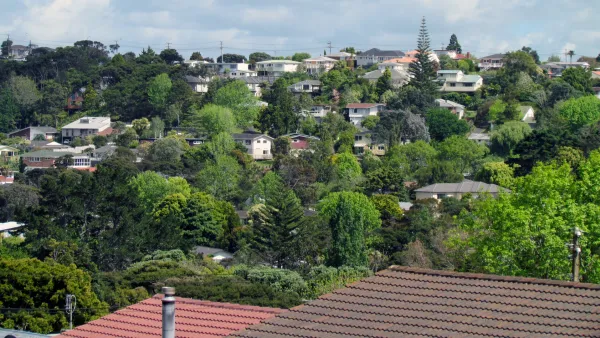Since a city judge determined the legality of the long controversial Housing Affordability and Livability Agenda, Seattle has been able to move forward with the plan to allow new density around the city.

The political saga of the Housing Affordability and Livability Agenda (HALA) plan continues in Seattle, where the City Council is expected to approve in March 2019.
The headlines of a series of recent articles in the Seattle Times by Danny Westneat and Daniel Beekman focus on the upzoning included in the HALA plan. Westneat describes the plan thusly: a "sweeping plan to upzone 27 Seattle neighborhoods to create taller, denser housing."
Here, Beekman describes the HALA: "The plan would upzone parts of 27 neighborhoods and a number of commercial corridors but would affect only 6 percent of lots now zoned for single-family houses. It would allow developers with projects in those areas to build one or several stories higher while requiring them to include or pay for some low-income apartments."
Westneat writes to dig into the political complications of upzoning in much more detail. And as a Seattle Times columnist, Westneat also offers a take on those political complications: i.e., expect complications. "The obvious peril with making a deal without public input, and also calling it 'grand,' is that there’s not much daylight for the plebeians to come along and have meaningful input into how it’s carried out," writes Westneat.
Meanwhile, Beekman has been covering the resolution and way forward from a recent legal challenge to the HALA plan's environmental review.
In an article dated November 21, Beekman reported that "Seattle’s environmental review of a plan to allow larger buildings and impose affordable-housing requirements in the urban cores of more than two dozen neighborhoods was almost entirely adequate," according to the ruling of the city’s administrative-law judge.
Then, in an article dated December 3, Beekman reports on the proceedings of the first meeting of the City Council on the subject of the plan since the judge's decision, when the council laid out a timeline for remaining work on the project. First to complete is some "additional analysis only on how the upzones plan would impact historic sites," which is expected to wrap up in January. Then, "[c]ouncil members would propose and discuss changes to the plan in January and February, and the council would hold a public hearing in late February," according to Beekman.
FULL STORY: Political trouble was ‘baked into the cake’ of Seattle’s sweeping upzoning plan

Analysis: Cybertruck Fatality Rate Far Exceeds That of Ford Pinto
The Tesla Cybertruck was recalled seven times last year.

National Parks Layoffs Will Cause Communities to Lose Billions
Thousands of essential park workers were laid off this week, just before the busy spring break season.

Retro-silient?: America’s First “Eco-burb,” The Woodlands Turns 50
A master-planned community north of Houston offers lessons on green infrastructure and resilient design, but falls short of its founder’s lofty affordability and walkability goals.

Test News Post 1
This is a summary

Analysis: Cybertruck Fatality Rate Far Exceeds That of Ford Pinto
The Tesla Cybertruck was recalled seven times last year.

Test News Headline 46
Test for the image on the front page.
Urban Design for Planners 1: Software Tools
This six-course series explores essential urban design concepts using open source software and equips planners with the tools they need to participate fully in the urban design process.
Planning for Universal Design
Learn the tools for implementing Universal Design in planning regulations.
EMC Planning Group, Inc.
Planetizen
Planetizen
Mpact (formerly Rail~Volution)
Great Falls Development Authority, Inc.
HUDs Office of Policy Development and Research
NYU Wagner Graduate School of Public Service




























